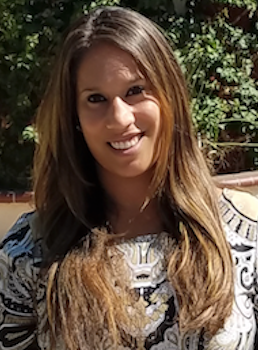Recently I was honored to be a part of a panel during the inspirational Allison Kluger’s workshop on Executive Presence for Women at Stanford – where she covers topics such as how people carry themselves, present themselves, communicate with others, and project competence and calm. I was joined by some incredibly talented women, who had many nuggets of wisdom to share – Yolanda Mangolini (Director of Diversity and Inclusion at Google), Kathrina Miranda (CEO at MiMA), and, Nadine Terman (CEO, Solstein Capital). There were so many great points made, here are just a few that I took away!
On where women struggle…
There were several obstacles and challenges that the women faced. Indeed, it has been found that many women are ready and want leadership roles, but confidence can hold them back. Even though women tend to be stronger at communications, empathy, pain tolerance, and are more likely to help others, they also tend to be more cautious, less likely to take risks, and have a greater lack in belief of their own self-worth than their male counterparts.
From her experience working with several female CEO’s and other numerous women in leadership positions, Kathrina was able to point out that the one thing she see’s over and over again, was not so much a lack in power and value, but the women’s lacking ability to really see that value, believe in their value, and communicate their value. It is as if they forget it – that they need to almost be retaught their worth and need help fully, and openly, acknowledging their true value.
This point correlated to our findings from studying confidence in women – where we saw that many women found it difficult to be themselves regardless of the audience they were interacting with, as well as struggling to speak up due to either thinking that they shouldn’t or because they felt they couldn’t articulate it well enough.
Kathrina also talked to the challenge women had in defining and projecting their personal brand. Just like Coke, or Nike have a brand, we too as people have our own personal brand that we need to create and demonstrate through our behaviors and actions. We all have something incredibly unique and valuable to offer to any organization we commit to, the challenge lies in how effectively we package and communicate it to others.
On being recognized in industries that can be perceived as male dominated…
Here, focusing on delivering constant and consistent value was a theme. Asking yourself – in every interaction – email, conversation, meeting, presentation, or project – did you deliver some tangible value? An idea, a solution, a clear business outcome? As this is something that over time will build you a recognized, positive, reputation.
There are some components to this that were covered:
- Having the drive and gusto to be the best at what you do. This takes constant learning – every day. It takes challenging yourself and putting yourself outside of your comfort zone. This is a moving target as domains are rapidly changing, merging with others, and there are new opportunities constantly arising – and the best keep moving, and often, leap ahead.
- Being able to articulate your reasons behind your point of view. I once was told that – I could disagree with someone, if I could explain why – and it has stuck with me my whole life. Being able to articulate the clear case behind your opinion, gives people the opportunity to follow your thought process and understand your perspective, rather than just delivering an opinion. The chances are you know exactly why you believe in what you believe, so let others know and give them the chance to understand too.
- Recognize yourself. Understanding and acknowledging what is a genuine achievement for yourself, regardless if someone else does, can lead to a more positive mindset which has a knock on effect to your overall confidence.
On elevating your company initiatives and programs…
It was commented to, that sadly, some of the same issues from decades ago are still in existence, and while we are making progress, we are not making as much as we would like when it comes to women in leadership. Indeed, Bain and Company found that, for women who had more than two years on the job, aspiration and confidence plummeted 60% and nearly 50%, respectively. So what can we do to elevate our strategies? Well, there were a couple of great points made…
Yolanda spoke to the importance of company culture and the overall effect it can have on women in leadership. It brought up conversations about race, gender, and other important factors that can suffer from both conscious and unconscious bias. She also spoke about the important role of managers here, and that understanding their role and value has a great impact on the success of such Agendas.
Nadine discussed the importance of understanding your power play. Finding out exactly where you could have impact. For her, it was through her ability to create a fully sponsored conference for the group 100 Women in Hedge Funds that puts asset allocators in the same room as woman-owned or -managed hedge funds. She went on to state that in your organization, your power play could be through access to money, hiring, training, or another lever that you could bring impact with – it is all about figuring out what that is for you and where you have the power to have impact in your environment.
And thirdly, going deeper in our current programming to cultivate the mindset and behaviors needed to lead. While there are women’s day’s and development opportunities that bring inspiration and awareness, they often do not lead to sustained impact where it counts. While we have groups of “top-talent” that are motivated and say “yes”, we can sometimes fall short in their development of the myriad of skills needed, such as political savviness, context awareness, emotional awareness, and the ability to respond…the behaviors and mindset that actually enable them to navigate their careers successfully.
On what can diminish a women’s executive presence…
A major theme that came up again here was forgetting your worth or the value you bring. Often this leads to thinking that you have to act a certain way, mimic certain behaviors, or do something that does not feel authentic to who you are, just to feel validated or to get ahead. In the end, this only works against demonstrating your executive presence.
Another, was being afraid. Being afraid of speaking your points, being afraid of looking deeply at yourself, being afraid of what others think, or being afraid to participate…
While fear in some circumstances is certainly a good thing, when it becomes inhibiting in non-threatening situations, we need to take a closer look. Executive presence could be described as the demonstration of authentic confidence, of the clear excellence in ones domain, and of an authentic vulnerability – where you are ok with your flaws and failures because they are growth opportunities. Unwarranted fear can work against all of this.
On mentors and sponsors….
One question arose on the value of mentors or sponsors, to which Yolanda pointed out a clear distinction. Mentors can give you advice, encourage you, and support you, and in the workplace a Sponsor will make things happen for you – they will put you forward for opportunities and be an action-led advocate for you. This kind of sponsorship is earned.
When it comes to mentors, it was clear that many “mentorship programs” were flawed. The relationship needed to be organic, where the mentor has a real interest in the mentee and that there is a natural and authentic connection. When this occurs, then mentors are invaluable – for bouncing ideas, giving truthful feedback, and inspiring you.
Another point, was the importance of spending time helping other women. Using all the collective wisdom your mentors have given you, and your own experiences and value, to continue the cycle of growth for the collective good and elevation of women as a whole.
In summary…
As Allison teaches, Executive Presence is made up of many things, including how you represent yourself, how you control a room, the impressions you make, your energy and how you affect the people around you, and importantly, your resiliency – your ability to bounce back.
Having studied these in-depth, both for authentic leadership and confidence, as well as for resiliency and navigating ones positive and negative states, it is clear that although it will take time and is a journey, these can indeed be learned. Through accountability, reflection, and forgiveness, we can flip our mindset, engage new behaviors, and make them stick.
One last little nugget…that can help increase your executive presence and increase your confidence: know what you want to be known for. Those 3-5 values that you want to be described by. Then use these words, use them to guide your decisions, and use them to reflect on your actions and behaviors. Ask yourself, if someone were to see a video of you today, would they use those words to describe you? If not, identify the changes you need to make. Over time, they will become your automatic guiding compass and, while the way you deliver something may change given your audience, you will start feeling more confidence as you portray your authentic self in each and every interaction, leading to congruence between your heart, head, and actions.
Together, with knowledge, understanding, and authentic confidence, we can break down the barriers and mental models that work against productive and engaging lives, and workplaces.
Finally, thank you!! To Allison, my fellow panelists, and all the women that attended. It was so insightful and filled with actionable advice!


